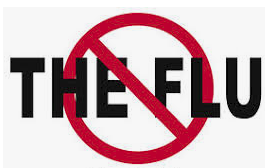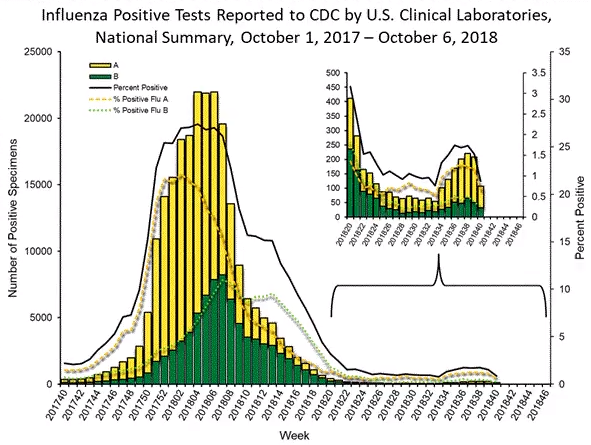
Fermo is warning you.
Get your flu shot now or you’ll be sicker than a dog soon.
It’s flu season, and everyone who is able should get a flu shot.

You might think, “Hey, the flu shot isn’t 100 per cent effective so what’s the point?” Or, “even if I skip the shot and get the flu, it’s not that big of a deal anyway.” Guess what: You should get it anyway!
Why?
First, because you’re wrong—as our Lifehacker health editor Beth Skwarecki writes, “Flu shots work, and are a smart way to reduce the chances that you’ll end up sick.” But secondly, and this is the more important point, this isn’t about you!
If you’re not going to do it for yourself, do it for children and the elderly, as Aaron E. Carroll writes in The New York Times.
Influenza, commonly called the flu, spreads easily. You can catch it from someone who coughs, sneezes or even talks to you from up to six feet away. You can infect others a day before you show any symptoms, and up to a week after becoming sick. Children can pass along the virus for even longer than that.
He adds that because the flu is so common, we tend to underestimate its impact. But in 2014, “more than 57,000 people died of influenza/pneumonia. It was the eighth most common cause of death, behind diabetes.” And of those deaths, two-thirds are among the elderly, while children under the age of five are hospitalized for the flu at the twice the rate of adults under 50, per the Times.

The Centre for Disease Control in Atlanta, USA, estimated that in the 2015-2016 flu season, the flu shot prevented more than five million cases of the flu, about 2.5 million medical visits and more than 70,000 hospitalizations. It was also estimated that it prevented 3,000 deaths. The CDC recommends a flu shot for everybody from six-month-old babies on up. The recommendations and available vaccines change slightly each year, so here is their latest update in regard to the flu vaccination for the 2018-2019 flu season. (Much of the information here applies to Canada also.)
Getting a flu shot significantly lowers your risk of dying or passing it on to someone who will die. If you cannot be bothered to get a flu shot for your own health, think of the children and the elderly. “You don’t get immunized just to protect yourself,” writes Carroll. “You also get immunized to protect those who can’t protect themselves.”
What are my options?
There are a few different kinds of flu shots, but most healthy adults don’t have to worry too much about which is which. It’s okay to go with whatever flu shot is at the clinic where you show up.
This year, most shots will be quadrivalent, meaning they protect against four (rather than three) different types of flu. The vaccine versions that are out there include:
- Regular vaccines delivered with a needle (trivalent or quadrivalent).
- Regular vaccines delivered with a jet injector, which is held up against your arm and sort of shoves a puff of vaccine through your skin.
- For older folks (whose immune systems do not respond as well to the regular vaccine), high dose flu shots and flu shots with an adjuvant.
- The nasal spray [ may not be available in Canada but ask your doctor].
So if you can get the needle, you probably should. But if you have a needle phobia so bad you would otherwise skip the shot, the nasal spray is better than nothing.
Not everyone can get the spray, though, because it’s made differently than the other vaccines. The nasal spray contains live viruses, but they have been altered so they are weakened, and they also cannot survive at body temperature so they cannot infect your lungs. But because you are technically being infected by a virus when you get the nasal vaccine, the CDC recommends that you not use this option if you’re pregnant, if you’re 50 or older, or if you have a weakened immune system or certain conditions that make you more vulnerable to infection. Get advice from your doctor.
Can the flu shot give me the flu?
No.
How much does it cost?
Usually nothing. In Canada, the flu shot is free. It is available through your family doctor and at almost every Shoppers Drug Mart pharmacy. Phone the pharmacy to that they provide the flu shot at that particular store. At the time of publication, Shoppers was providing vaccination to seniors only as it launches this year’s vaccinations.
Does it matter when I get it?
October is the optimum time for the flu shot, long before “somebody coughs flu germs in your face,” but predicting the best time is difficult. Mid October is perfect because it is often in early November that flu cases start to rise.
If your child is getting the flu vaccine for the first time, they will a different vaccination protocol, likely two doses, given four weeks apart but again check with your family physician. That process is best started in September since they will not be fully protected until the second shot kicks in—but, again, better late than never.
If you get your shot in November or later, you might end up getting coughed on before the vaccine can give you superpowers. A late shot is still better than none, though, and you can even get a shot toward the end of flu season if supplies are still available.
If you already got your shot in September, that’s fine. The vaccine’s protection does decline over time, but not enough to make a big difference for most individuals.
 Seniors are recommended to ask about the “high dose” flu shot which is available from doctors’ offices only.
Seniors are recommended to ask about the “high dose” flu shot which is available from doctors’ offices only.
Don’t be selfish, think about others and get the flu shot.





